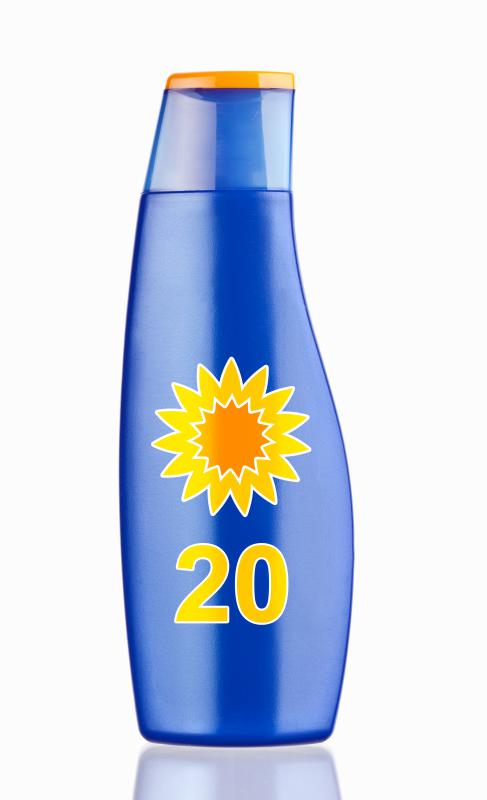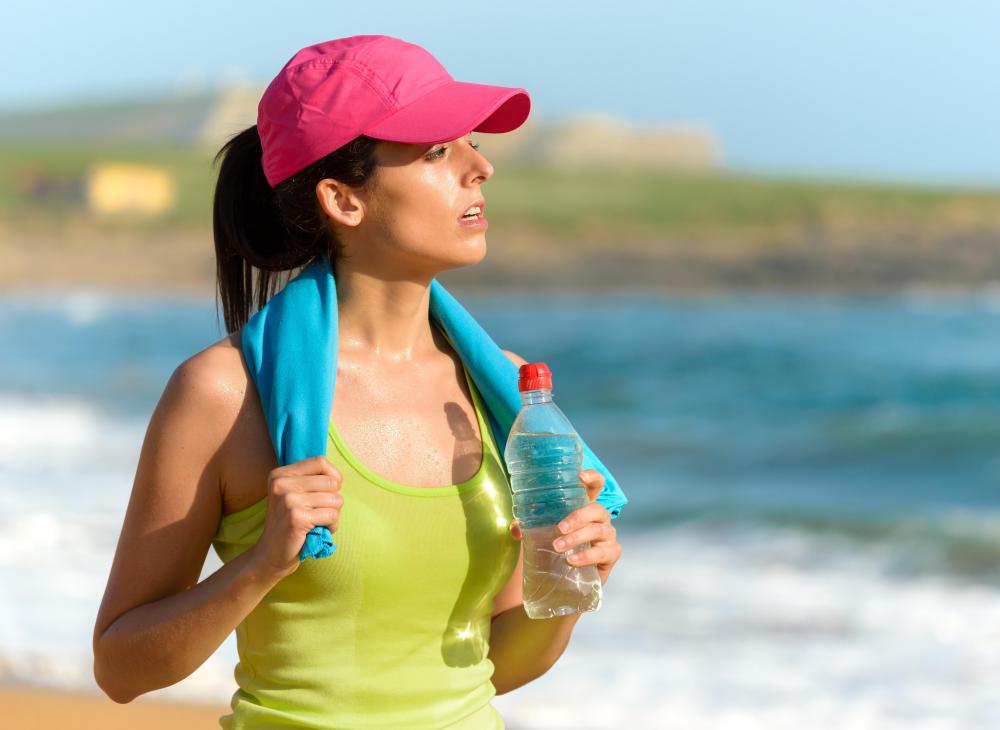At TheHealthBoard, we're committed to delivering accurate, trustworthy information. Our expert-authored content is rigorously fact-checked and sourced from credible authorities. Discover how we uphold the highest standards in providing you with reliable knowledge.
What are UV Rays?
Ultraviolet (UV) rays are invisible rays that are part of the energy that comes from the sun. UV rays can burn the eyes, hair, and skin if these parts of the body are not properly protected, or if they undergo too much exposure to the sun. Nevertheless, they are very useful in our ecosystem.
UV rays assist our bodies in making vitamin D, which strengthens bones and teeth and helps our bodies build immunities to such diseases as Rickets and colon cancer. They are also used to treat psoriasis; the rays slow the growth of skin cells, preventing the outbreak of the itchy patches for which psoriasis is known. They have various commercial uses as well, including sterilization and disinfection. Some animals, such as bees, can see in ultraviolet, which helps them to collect pollen from flowers.

In spite of all their positive uses, UV rays remain very harmful for anyone who spends a large amount of time in the sun without proper protection. The most common effect of exposure to them is sunburn. Sunburn causes blood to rush to the affected area as the body tries to cool the burn, and the damaged skin ultimately peels away. In addition to the burning pain on the skin, sunburn can ultimately cause skin cancer.

Skin cancer is often caused by prolonged exposure to ultraviolet light, but it can occur even when there is no evidence of sunburn. Dark skinned people are just as susceptible as those with fair skin to the damage caused by UV rays. Eye damage caused by these rays first shows up as pain or temporary blindness and blurred vision, but over time, cataracts can develop. The UV index measures the intensity of UV radiation and gives people an idea of how long they may remain in the sun before damage is possible. An index of 1-3 means the possibility for UV damage is low, while and index of 8-10 means the possibility is high.
The best way to combat UV rays is with bodily protection. Always wear protective sunglasses and a hat to protect the eyes. A hat will also protect hair from UV damage, as well as the skin on the face and neck.

While the best protection for the skin is long, loose clothing, this is not always practical, so the next best option is a protective sunscreen. There are many types of sunscreen, but they all have a number indicating how protective they are. The higher the number, the more protection they provide. Always use sunscreen, even if you will only be in the sun for a few minutes. Be smart, cover up, use sunscreen and enjoy the sunshine!
AS FEATURED ON:
AS FEATURED ON:


















Discussion Comments
For those confused on what sun protection to use, always use a broad spectrum 15 or higher. It protects you from UVA and UVB.
I have fair skin and I heard the higher the SPF the higher UVB protection, but the lower the UVA. Is that true? If so, which SPF is best for fair skins?
my doctors have told me to avoid the sun as i have discoid lupus (lupus of the skin). are there other sources of uvs that can affect my skin as well? thanks in advance for your response.
What is the effect of ultraviolet rays other than xrays on human body.
Please provide the remedy for these rays by Indian traditional method.
Man-made UV rays are found in black lights, UV lights, dental equipment, and many more things!
Sunscreen and sunblock aren't the same. Sunblock is stronger than sunscreen.
what about UV umbrellas? do they help you?
if you are wearing a wide brim hat with a white underneath you will get sunburned, especially if you are on the beach, because the sand will reflect the sunlight.
ultra violet rays are used to cure cancer disease it's a very good thing found by the doctors.
i think people should use sun block if they go to the beach.
Truly i think sunscreen helps your skin. Thanks.
For your eyes, wear polarized lenses with UVA and UVB protection. As well, sunscreen is a must even on cloudy days. Ultraviolet wavelengths can still reach you.
can anyone tell me in detail how uv rays are created by man?
what is the reason for incubating the UV-exposed cells in a dark environment?
What type of protection can be taken for eyes from uv rays...
Are UV rays multi-directional? Can I get a sunburn even if wearing a big hat on a sunny day?
I got a sunburn while wearing a solid hat- do UV rays travel only in straight lines, or are they all over?
This article refers to a scale of 1-10 for UV rays. The weather reports I see have a scale of 1-16. I understand the lower the better but what is considered low, mid, and high range.
TKS
very helpful...very dangerous. :|
There are now excellent quality window films for homes & cars that deflect 98 to 100% u v rays. Some of these films have a Visible Light transmission of 70% so they are barely visible but block UV and IR rays. Anyone that is the least bit concerned about skin cancer or sun damage should seriously consider a better quality Ceramic or Museum Grade window film. Some trucking companies are required to tint the windows to protect the driver's skin and eyes from long term exposure to the sun.
Is it necessary to wear sunscreen in cloudy day and raining day? It seems that there is no UV rays in cloudy and raining day, isn't it?
A lot of people don't realize how harmful UV rays can be for their eyes. Even people who wear sunscreen most days often forget to protect their eyes, but a lot of damage can occur if your eyes are not protected.
Post your comments